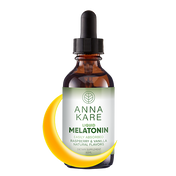What is IBS?
Irritable bowel syndrome (IBS) is a common gastrointestinal (GI) disorder which effects over 35 million people in the United States. IBS has many symptoms such as abdominal pain, bloating, cramping, gas, and alternating diarrhea with constipation.
IBS has been classifies as a functional disorder caused by food sensitivity or allergies, bacterial overgrowth, dysfunction of the communication between the brain and the nerves of the GI tract, genetics, or mental and emotional stress and disorders.
IBS is typically treated by giving the patient a variety of medications such as anti-anxiety drugs and anti-depressants and medications for diarrhea and constipation which help relieve the symptoms but do not work to bring long-term relief.
Working With Your Diet
People with IBS have varying types of symptoms and food sensitivities. Therefore there is no one-size-fits-all approach to eating and dieting for IBS. However, there are some general guidelines that can help you avoid aggravating your symptoms.
- Eat small portions which include three small meals and two small snacks a day. Overeating and eating large meals can aggravate your symptoms.
- Emotions are also a common trigger factor, therefore it is recommended that you eat in a pleasant, stress-free environment.
- Eat slowly and chew well. Digestion starts in the mouth as the saliva starts breaking down the food. Chewing well helps your food break down faster which can help eliminate symptoms of IBS.
Avoid "high trigger foods" which include diary and diary products; gluten and foods high in carbohydrates; rich, fatty, and fried food; spicy foods; sugar, chocolate, and excessive sweets; coffee, tea, and other caffeinated and carbonated drinks; alcohol.
Develop a Diet Plan
In addition to the general guidelines above, here is a simple program for you to develop a diet plan for yourself.
1. For two weeks eat a simple diet which does not include any of the “high trigger” foods listed above. Eat warm cooked food that is easily digestible such as rice, steamed vegetables, and a protein of your choice. Keep in mind that raw vegetables, salads, cabbage, beans, broccoli, and cauliflower can be harder to digest and can cause gas.
2. After two weeks begin to add the “high trigger” food into your diet one at a time. Keep a journal so that you develop an understanding of your own food sensitivities. Once you have completed this process, you can eat a balanced diet avoiding any of your food triggers. You can try some of the simple and delicious recipes on our site.
If your symptoms persist, consult with a food allergy specialist for further testing and analysis of your food sensitivities.
Breathing Practices and Meditation
Various studies have shown that there is direct correlation between your emotions and your digestion. This is why it is highly recommended by alternative health practitioners to develop a daily breathing and meditation practice.
Stress, anxiety, depression, PTSD, and trauma have been linked to causes of IBS. Meditation and breath work (pranayama) not only calm the nervous system and balance the emotions but also help relieve the physical symptoms related to IBS. Begin with a breathing exercise and follow up with a meditation technique.
Homeopathic Remedies for Irritable Bowel Syndrom (IBS)
Read about single homeopathic remedies for IBS.
Reference: National Institute of Diabetes and Digestive and Kidney Diseases


















